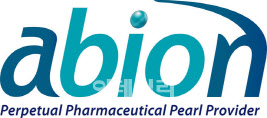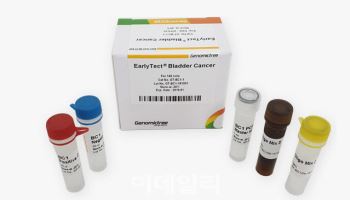Unauthorized reproduction or distribution is illegal and subject to criminal penalties.
Pharm Edaily enforces a zero-tolerance policy and will take strict action.
[NA Eun-kyung, Edaily Reporter] On June 24, four of the ten stocks that hit the daily upper limit on Korea’s KOSDAQ market belonged to the pharmaceutical, biotech, and healthcare sectors, according to KG Zeroin’s MP Doctor.
HLB Therapeutics Sinks on Disappointing Phase 3 Trial HLB Therapeutics plunged to the daily lower limit, falling 29.92%, after announcing that its fifth Phase 3 trial of RGN-259 failed to demonstrate statistical efficacy in a European study. The company received topline data from its CRO on June 24 and plans to analyze the full dataset over the next two weeks.
Despite a number of patients showing complete recovery in the RGN-259 treatment arm, a company representative noted that the placebo group exhibited unusually high efficacy, complicating the analysis. “We will conduct a detailed investigation into why placebo effects were so pronounced based on both primary and secondary endpoint data,” the official said.
Originally developed by GtreeBNT (now HLB Therapeutics) for dry eye disease (DED), RGN-259―also known as GBT-201―has already gone through three failed Phase 3 trials for DED. The drug was later repositioned to target neurotrophic keratitis (NK), a rare disease, and renamed RGN-259.
The fourth Phase 3 DED trial (ARISE-4) was deferred, with the company instead focusing on three NK trials: SEER-1, SEER-2 (ongoing in the U.S.), and SEER-3 (the latest European study). While SEER-1 previously demonstrated statistically significant results (P=0.04 at week 4 and P=0.0186 at week 6), the trial enrolled only 18 patients versus the planned 46, prompting further studies.
HLB Therapeutics emphasized that SEER-2, with a target enrollment of 70 patients, is still in progress, with about half the patients recruited across 31 sites. The company plans to expand to 10 more sites and complete enrollment by the end of the year. “Although SEER-2 and SEER-3 share the same design, they are independent trials, and the U.S. study will proceed regardless of the European outcome,” the official added.
The company also reiterated plans to continue discussions with global pharmaceutical companies regarding a license-out deal. “Based on positive efficacy seen in SEER-1 and current data, we aim to pursue partnering opportunities by late this year,” the official said.
Bridge Biotherapeutics Rallies on Strategic Investment
 | | James Lee Bridge Biotherapeutics CEO (source: Bridge Biotherapeutics) |
|
Bridge Biotherapeutics extended its winning streak for a third session following its June 20 announcement of securing strategic investment to avoid delisting. The stock hit the upper limit for two consecutive days, June 23 and 24.
“The main purpose of this investment was to maintain our listing,” CEO James Lee told PharmEdaily. The company selected U.S.-based digital asset hedge fund Parataxis as its strategic investor, citing its strong track record and committed funding. “While we would have preferred a pharma company as SI, circumstances led us to partner with Parataxis, which we found to be a good strategic fit,” Lee said.
Parataxis Holdings plans to outline its strategic direction at a shareholder meeting in August, which will also determine whether Lee retains his CEO role and whether Parataxis will take a board seat. For now, Lee stated his top priority is to out-license the company’s four clinical-stage drug candidates.
Abion and Telcon RF Pharma Hit Upper Limit
Shares of Abion and its largest shareholder, Telcon RF & Pharmaceutical, soared to the daily limit after ABION BIO announced a $1.3 billion global co-development and licensing agreement for its preclinical pipeline, ABN501.
The agreement covers global rights to five target antibodies, including claudin-3 (CLDN3), a protein overexpressed in solid tumors such as small cell lung cancer (SCLC). ABION BIO is responsible for non-clinical studies, while the partner company will oversee further R&D and commercialization. The deal includes upfront payments of $5 million per antibody, potentially totaling $25 million, with the amount adjustable based on the number of selected targets.
ABN501 leverages various platforms―including antibody-drug conjugates (ADC) and bispecific antibodies―for broader applicability across multiple cancer types. “There are no approved drugs yet targeting CLDN3, so we’re aiming for first-in-class potential,” an ABION BIO official said, noting the pipeline’s versatility in future ADC or bispecific formats.











